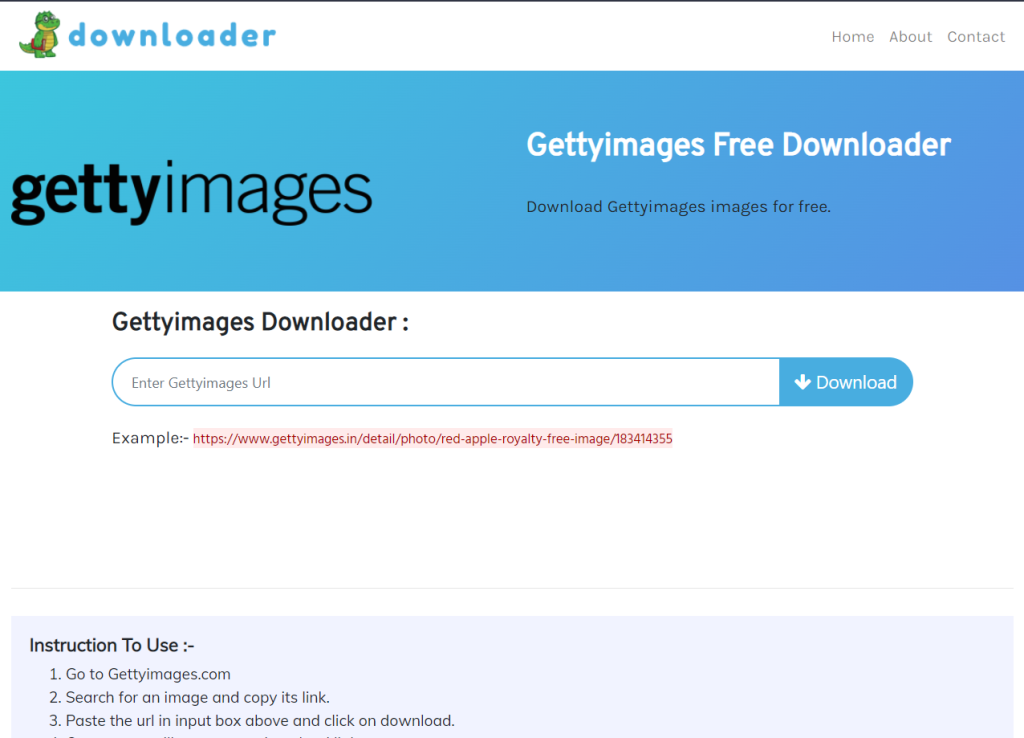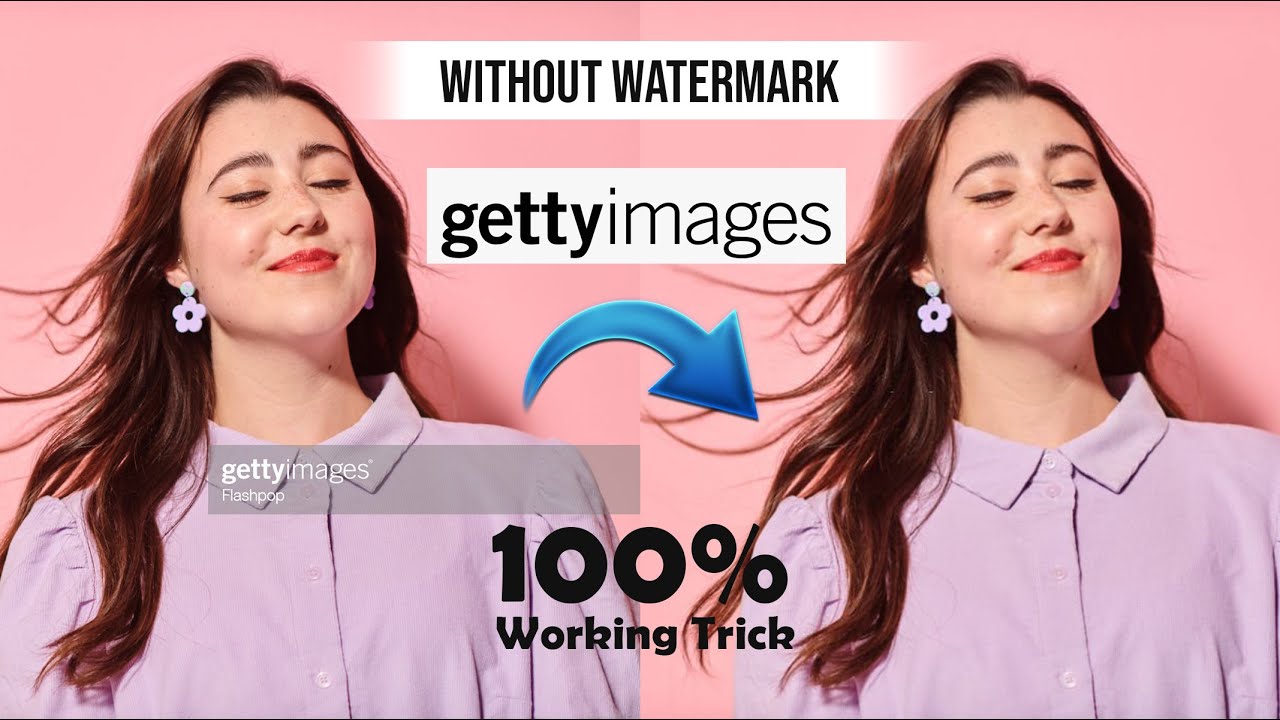Getty Images is a leading stock photography agency that offers a vast collection of high-quality images, videos, and music that can be used for various projects. As a creator, designer, or marketer, you might be tempted to snag images from Getty without paying, especially if they feature watermarks. However, understanding the ins and outs of their licensing agreements is crucial. This guide aims to help you navigate the world of Getty Images legally to find the right visuals for your needs without falling into copyright traps.
Understanding the Importance of Image Licensing

When you see a stunning photograph or video, it’s easy to assume you can just download it and use it for your project. However, this assumption can lead to serious legal complications. That’s where image licensing comes in. Here’s why it’s essential to fully grasp what image licensing means:
- Protects the Creator’s Rights: Licensing is a way for photographers and content creators to protect their work. By licensing their images, they retain copyright while allowing others to use it under specific conditions.
- Avoids Legal Issues: Using images without permission can lead to hefty fines and legal battles. License agreements outline what you can and cannot do with an image, ensuring you stay on the right side of the law.
- Ensures Quality Content: Licensed images generally meet higher quality standards and are more professional, which is vital for any branding or marketing efforts.
When you choose to legally obtain images, you also respect the rights of creators. This acts as a strong foundation for maintaining ethical practices in the creative industry. Here are some key points to consider:
| Type of License | Description |
|---|---|
| Royalty-Free (RF) | Allows you to use the image multiple times after a one-time fee, without paying royalties for each use. |
| Rights Managed (RM) | Provides usage for a specific duration, geographical region, and purpose. Pricing may vary based on these factors. |
| Creative Commons (CC) | Images under CC licenses may be used for free but often come with restrictions such as attribution or non-commercial use. |
One common misconception is that the internet offers a free-for-all approach to imagery. While there are some free resources available, using images without proper licensing from reputable sources like Getty Images can endanger your projects. It's vital to understand the consequences of using images without authorization, as it can lead to financial loss and damage to your professional reputation.
In conclusion, navigating image licensing might seem daunting, but it’s a necessary step for anyone looking to enhance their work with visuals. By ensuring that you adhere to licensing terms, not only do you promote ethical use of creative! material, but you also guarantee that you can continue using reliable, high-quality content in your projects without stress or repercussions. Stay tuned for the next sections where we’ll explore how to find and download licensed images without watermarks from Getty Images legally!
Also Read This: Understanding Getty Images Free License Options
3. Methods to Obtain Getty Images Legally

If you’re looking to use Getty Images for your projects—whether it's for a blog, marketing materials, or presentations—you'll want to know the best ways to obtain these images legally. Thankfully, there are several methods to do so while respecting copyright laws.
Here are some popular methods:
- Purchase a License: The most straightforward way to obtain images from Getty is by purchasing a license through their website. This gives you full rights to use the images without watermarks for your specific project. Pricing varies based on factors like size and usage type, so be sure to review their licensing options carefully.
- Subscription Plans: Getty offers subscription plans that can reduce costs if you need multiple images over time. This is ideal for businesses or frequent creators who need a regular influx of high-quality images. A subscription may provide you with a set number of downloads per month, depending on the plan you choose.
- Creative Commons License: Some images on Getty are available under a Creative Commons license. This means you can use them for free, under certain conditions. It's crucial to read the specific licensing terms associated with each image to ensure you comply with attribution requirements.
- Collaborations or Sponsored Content: If you're working with a brand or an agency, they might have accounts with Getty Images. Collaborating with them could provide you access to images without additional costs, ideal for marketing campaigns.
- Stock Image Packages: Sometimes, Getty partners with other platforms to offer packages of stock images. These bundles can potentially include images from Getty at a discounted rate. Keep an eye out for promotions or seasonal offers!
By using these legitimate channels, you can avoid legal issues and ensure your projects have the quality imagery they deserve. Always remember to check the specific licensing agreements related to the images you choose!
Also Read This: Mastering Your Getty Images Login and Account Management
4. Alternatives to Getty Images
If you find that Getty Images is not the best fit for your project needs—perhaps due to budget constraints or specific image types—you're in luck! There are plenty of alternatives that offer high-quality images, sometimes even free options that allow for legal download.
Here’s a roundup of some fantastic alternatives:
- Shutterstock: Similar to Getty, Shutterstock offers a vast library of stock images, vectors, and video clips with easy licensing options. They provide subscription plans and on-demand purchases, making it accessible for various budgets.
- Adobe Stock: If you’re using Adobe products, Adobe Stock integrates seamlessly with applications like Photoshop and Illustrator. It boasts millions of high-quality images and allows for easy licensing, not to mention packages that can save you money.
- iStock: Owned by Getty Images, iStock often provides images at a lower price point. Their credits system allows for more flexibility in purchasing images compared to the direct Getty site.
- Unsplash: Unsplash offers a huge collection of high-resolution images provided by a community of photographers. Best of all, it’s completely free to use, even for commercial projects, which is a significant plus for those on a budget.
- Pexels: Like Unsplash, Pexels offers free stock images and videos. The site is user-friendly, allowing you to easily navigate through categories and search terms. It's a fantastic resource for anyone needing visuals without cost.
- Pixabay: Another free option for stock photography, Pixabay provides a mix of photos, illustrations, and even videos. The images are released under a simplified Pixabay license, granting easy access with minimal restrictions.
Exploring these alternatives can lead you to find the perfect images that suit your style and budget while keeping things legally sound.
Also Read This: How to Download Images from Getty Without Watermark
5. Tips for Using Images Legally and Ethically
When it comes to using images, particularly high-quality ones from platforms like Getty Images, it's essential to consider both the legal aspects and ethical implications. Here are some practical tips to help you navigate these waters smoothly:
- Understand Licensing Agreements: Every image comes with its licensing terms. Familiarize yourself with the different types of licenses—like royalty-free or rights-managed. This will help you know how you can use the image legally.
- Always Give Credit: If the license requires attribution, make sure to give proper credit to the creator or the platform. This is not just a legal obligation; it shows respect for the artist’s work.
- Know the Limitations: Some licenses may have restrictions on the type of content you can use the images for. For instance, commercial use vs. personal use can differ significantly. Always read the fine print!
- Stay Updated: Licenses can change over time. It’s crucial to keep updated with any changes in the terms of service from Getty Images or any other image provider you use. This ensures you remain compliant and avoid any legal issues.
- Seek Alternatives: If you can’t afford certain licenses, there are many alternatives available. Free stock photo websites (like Unsplash or Pexels) provide images that are often free for commercial use, without watermarks.
By incorporating these tips into your image usage practices, you can not only avoid legal troubles but also foster a culture of respect for the creators in the digital space.
6. Conclusion
In conclusion, downloading Getty Images without watermarks legally and ethically isn't just about avoiding the watermark—it's about respecting the intellectual property of photographers and artists who invest time and resources into creating stunning visuals.
To recap, always: read licensing terms, make sure to give proper credit when required, and keep yourself updated on any changes to usage rights. By doing so, you’ll not only protect yourself legally but also contribute to a positive environment where creativity thrives.
Remember, the internet is a vast repository of incredible visual art. Treat those images with the respect they deserve, and you’ll find that your audience responds positively to your commitment to ethical practices. Happy creating, and remember to use images wisely!
 admin
admin








